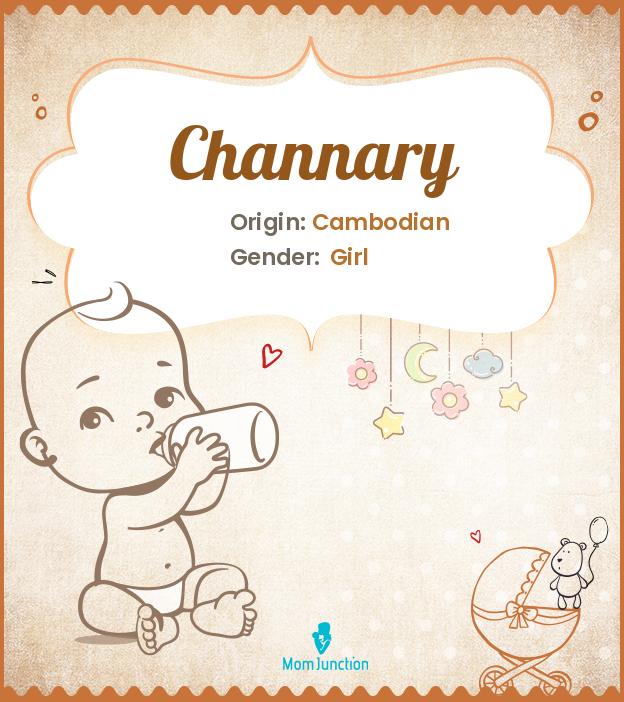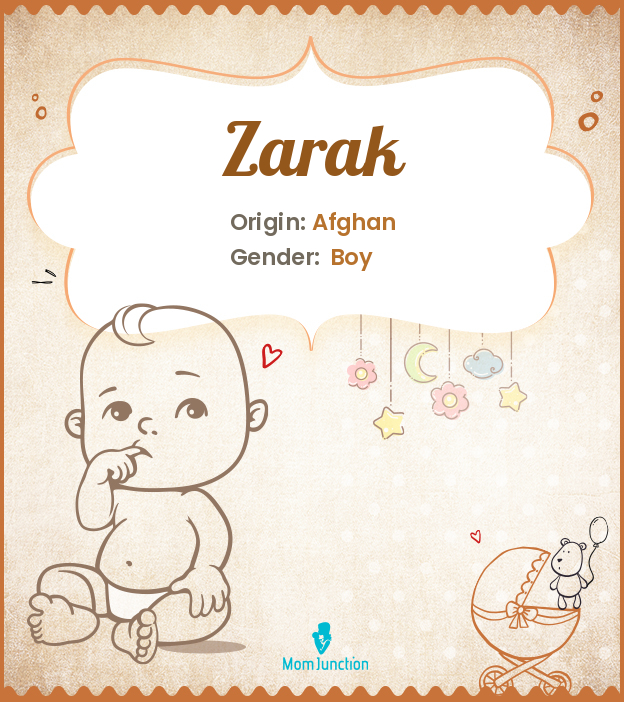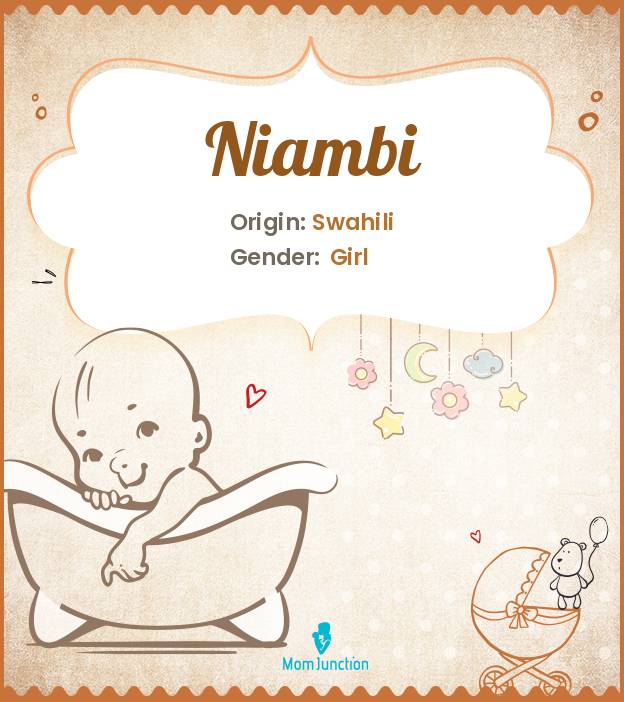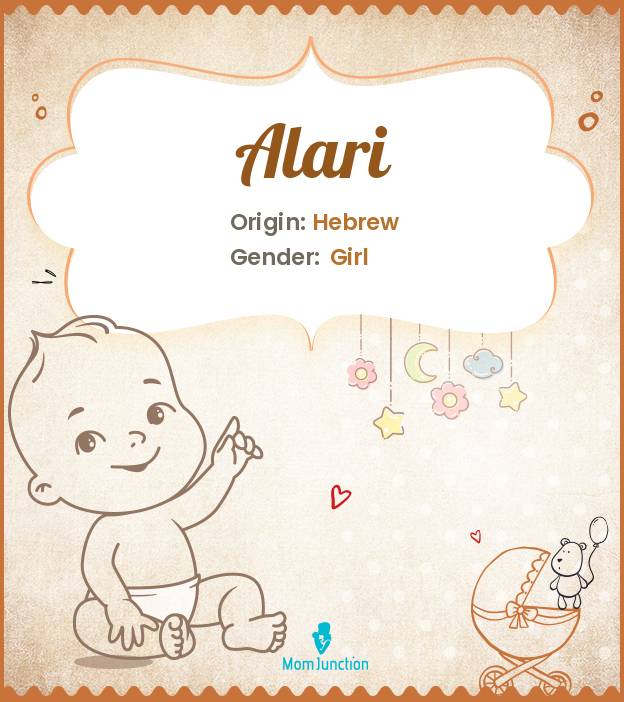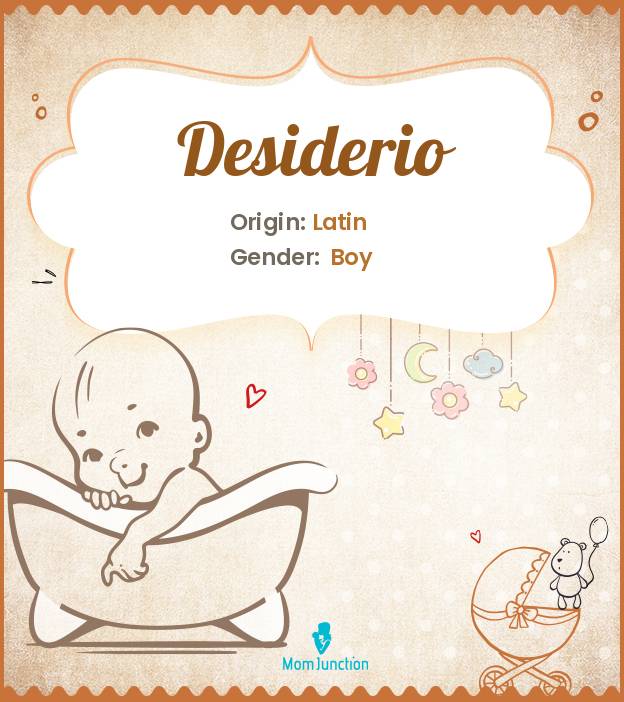194 Indo-European Names With A Slice Of History
Celebrate the amalgamation of vibrant cultures with a rich history.
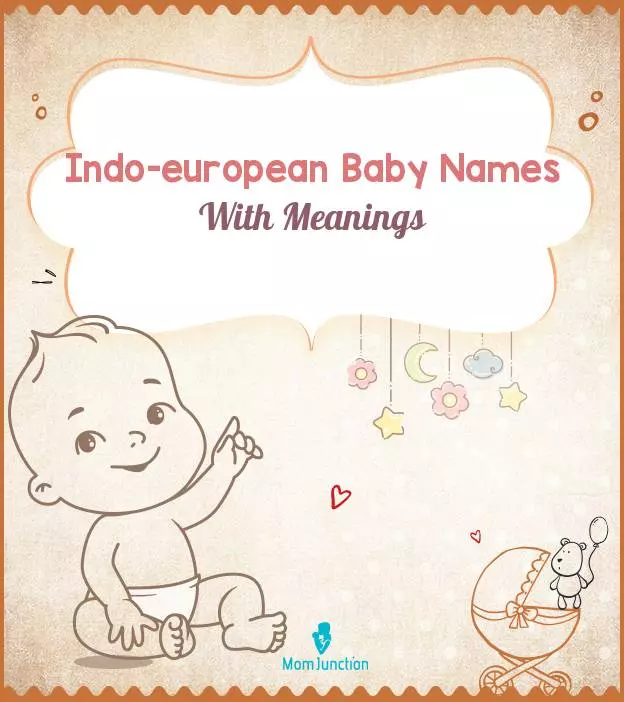
Illustration: MomJunction Design Team
Naming a baby is a challenging yet exciting process as it will be the first gift that you will give them. And Indo-European baby names may be unique and interesting options to explore. Most parents may look for a name that honors a loved one, has a special meaning, and sounds unique. But another tried, tested, and successful strategy is giving a name from a different country, heritage, or culture. Indo-European names are the perfect blend of these qualities. The Indo-European language is a family of 445 languages related to dialects and languages, with a majority belonging to modern languages of Europe, Iran, and Asia (1). Even the Indo-European names are as varied as the languages. Naming a child isn’t just about selecting some arbitrary sounds that can be associated with a child in Indo-European regions. It is about cementing the future life and reputation of the individual. Even the naming process is ritualistic in these areas. After the child’s birth, parents wait at least nine days for naming so that the mother can recover from childbirth. On the tenth day, the child is given a name after an elaborate bathing ritual for the mother. This process can be seen in Greek, Indian, German, Iranian, and Roman cultures. The Indo-European names reflect their religion, culture, battles, strength, and leadership values. Although these names have diverse cultures and backgrounds, they have significant meanings and are inspired by various cultures, elements in nature, Gods, mythology, and traditions. For example, the name Kaiya is an ancient Greek name and stands for ‘Yew tree,’ signifying the deep connection with nature. And the name Ethelsige, which stands for an ‘Anglo-Saxon King,’ celebrates the ties with mythology and historical figures. Another example is the name, Diana, meaning ‘Goddess,’ which has a cross-cultural and timeless appeal. Many such names bridge linguistic differences and are a source of fascination for parents worldwide. Scroll down to check out our collection of Indo-European names with meanings.
On This Page
Browse Baby Names By Gender
Browse Baby Names By Alphabet
| Name | Gender | Meaning | |
|---|---|---|---|
|
|
Bringer of light; From Lucania; Light | ||
|
|
Who is like God | ||
|
|
Olive tree; God is with us; White shoulders; Fair; Noble | ||
|
|
A place in Italy; Orange-red | ||
|
|
Praised; Commendable | ||
|
|
Moorish | ||
|
|
Dark river; Dark water | ||
|
|
Star | ||
|
|
Manly; Masculine | ||
|
|
Hunter; Child of shadows; Of the raven | ||
|
|
Moorish | ||
|
|
One who is from the west; Evening; Night | ||
|
|
Small and humble | ||
|
|
Yahweh is exalted; The Lord is elevated; Afflicted | ||
|
|
A religious leader authorized to perform rituals; To throw | ||
|
|
My struggle; My strife; Red deer | ||
|
|
Arrogant; Haughty; Excess; Exuberance | ||
|
|
Heart; Yahweh's servant; Worshiper of Yahweh | ||
|
|
Hawk | ||
|
|
Alive; Lively; Favor; Grace; Violet | ||
|
|
Intend; Courage; Strength and bravery | ||
|
|
Corposant; Torch; Moon | ||
|
|
Earth; Elevated place; Soft | ||
|
|
Handsome; Beautiful; Good; Fine | ||
|
|
Swamp | ||
|
|
Stony; Stone | ||
|
|
The other Aenor | ||
|
|
One having Godly merits | ||
|
|
Bear | ||
|
|
The one who carries God's message; Humble | ||
|
|
The other Aenor; Light; Compassion | ||
|
|
My God; Divine; Celestial; Godly | ||
|
|
Hawk | ||
|
|
Eye; Early; Black; Dark; To guide; Bright; Radiant | ||
|
|
Aryan; Noble | ||
|
|
Divine; Goddess-like; Valley; Chief; Deed | ||
|
|
Sun rays; The other Aenor | ||
|
|
Moorish | ||
|
|
The attractive | ||
|
|
Other or different; Another | ||
|
|
Oak tree grove | ||
|
|
Order; Command; Divine order | ||
|
|
Youthful; Young | ||
|
|
Noble and ready; Strength; Heaven; Sky; Royalty; Lion | ||
|
|
Brown; Yellow; Drops of rain; Monkey; Tawny; Horse; Lion | ||
|
|
Little bear; Liquid | ||
|
|
Christmas; Christmas day; Day of the Lord | ||
|
|
Oak tree grove | ||
|
|
Woman; Wife; Hospitality; Guest; Foreigner; To wink | ||
|
|
Sand; Moon; Torch; Corposant | ||
|
|
NA | ||
|
|
One who has dark skin | ||
|
|
Poster; Placard; Page | ||
|
|
One who sings God's praises | ||
|
|
One who sings of God's praise | ||
|
|
Coastal inlet; Hard; Firm | ||
|
|
Moorish | ||
|
|
Stony; Stone | ||
|
|
World; Kingdom; Universe | ||
|
|
Little rock; Handsome | ||
|
|
Nebula | ||
|
|
King of Gods | ||
|
|
A dark river or stream | ||
|
|
Dark river; Dark water | ||
|
|
Immortal; Divine power | ||
|
|
Noble; Courteous; Friendly; To beget | ||
|
|
Sun | ||
|
|
Quiet; Calm | ||
|
|
Christmas | ||
|
|
God's light; Inaccessible Light | ||
|
|
Gift of God | ||
|
|
One whose morals are bright like the sun | ||
|
|
Yew tree settlement; Boar village | ||
|
|
He holds; Father of many | ||
|
|
Precisely; Completely | ||
|
|
Dignified; Worthy | ||
|
|
Humility; Modesty | ||
|
|
Expensive and glittering as gold; Gilded | ||
|
|
The other Aenor; Honor; Esteem; Dignity | ||
|
|
Torch; Corposant; Moon; Bright; Clear; Vaianakh god of darkness; Wanton sport | ||
|
|
One from Delos | ||
|
|
Messenger of the God | ||
|
|
Quality of supreme; Beyond birth | ||
|
|
Black one; Descendant of Dubthach; Descendant of the peaceful black one | ||
|
|
More; Dawn | ||
|
|
Moorish | ||
|
|
Heart; Mind; Soul; Love; Pleasure; Joy | ||
|
|
To admire | ||
|
|
Spear king; Oak tree grove | ||
|
|
Mistletoe; To have; Knife | ||
|
|
Eight or eighth | ||
|
|
Solemnity; Virtue; Big; Large; Nothing; Non-existent; Millstone; Plain; Moor; Heath | ||
|
|
Sea of bitterness; Rebelliousness; Wished for child; Beloved | ||
|
|
Love; Joy; Pleasure | ||
|
|
Young | ||
|
|
Beloved friend; Joy; Bliss; Joined in harmony; Lion | ||
|
|
Little rock; Handsome | ||
|
|
Treaty; Binding promise; Evening star; Goddess Ishtar. | ||
|
|
Seashore; Coast | ||
|
|
Graceful | ||
Indo-European baby names cover a large group of culturally rich names with varied roots and traditions. These names cross borders, have significant meanings, and each has a story. With a mix of traditional and modern names, there is something to suit everyone’s preferences. From having historical significance to linguistic connections, these names are timeless and unique, with their popularity growing day by day. If you are looking for names with depth and striking significance, these Indo-European baby names might be what you’re looking for.
Frequently Asked Questions
1. What is the significance of traditional Indo-European baby names?
Indo-European names often find their roots in captivating ancient myths and legends, allowing parents to pay homage to the heroic figures, gods, and goddesses from their cultural legacy. For instance, Apollo, denoting 'father lion,' splendidly represents the son of Zeus and Leto. Dan, meaning 'he judged,' finds significance as one of Jacob's twelve sons in the Old Testament. Jupiter, a beloved name associated with 'light,' traces its origins to the revered Roman god.
2. What are the different cultural meanings behind Indo-European baby names?
Indo-European baby names are derived from the languages and cultures of the Indo-European language family that elegantly encompass a wealth of cultural meanings and historical importance (2). Among them, Elena, meaning 'torch,' Boris, evoking the image of a 'wolf,' Alexander, signifying 'defending men,' and Sophia, embodying 'wisdom,' stand as cherished and widespread Indo-European names, beautifully honoring the vast region's profound heritage.
Infographic: Stunning Indo-European Baby Names
Indo-European baby names trace their roots to diverse cultures, languages, and histories. These names carry deep meanings, often inspired by ancestral history and traditions. Also, such names are becoming widely popular in the current times. Check this infographic for exciting options if you are looking for names that cross borders and have intriguing roots.
Illustration: Momjunction Design Team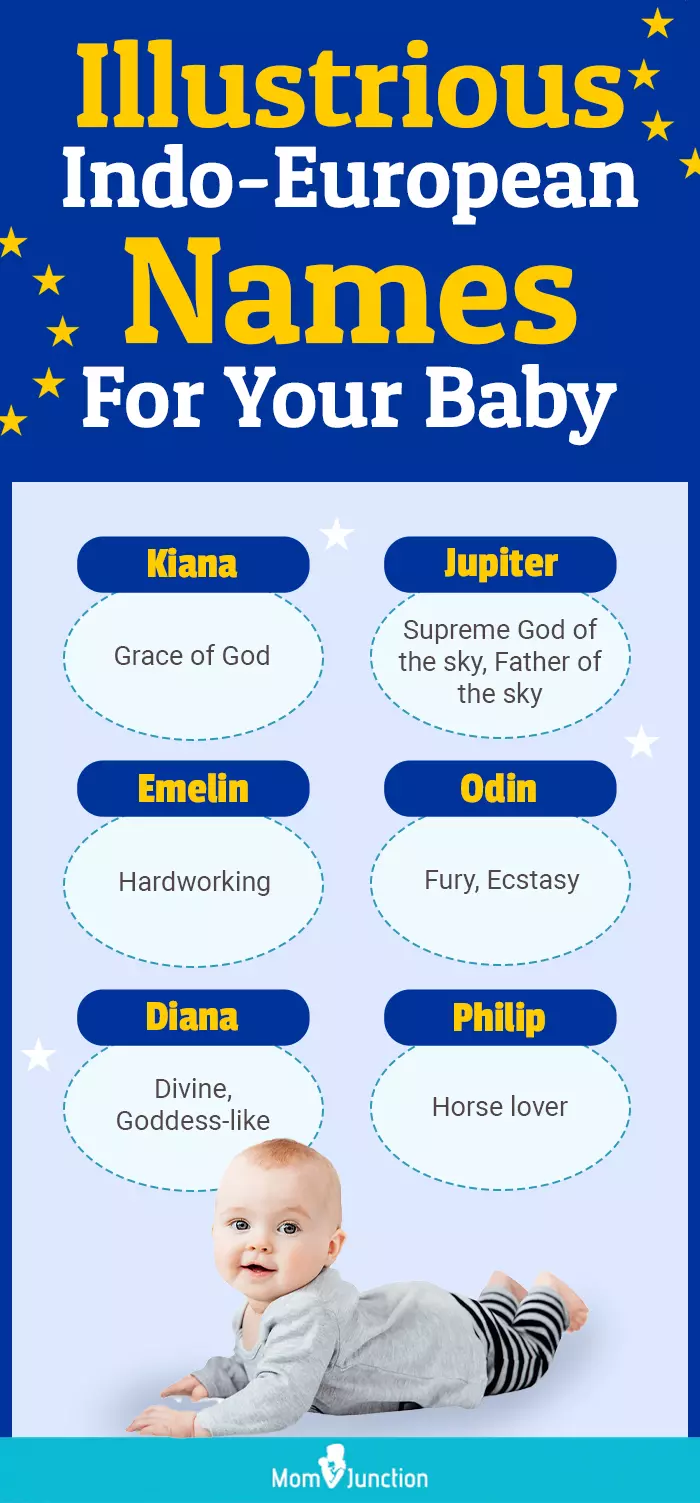
References
- Michael Gross; (2018); The Indo-European ancestors’ tale.
https://www.sciencedirect.com/science/article/pii/S0960982218307577 - Indo-European Languages.
https://www.worldhistory.org/Indo-European_Languages/
Look Up For Many More Names
Do you have a name in mind and want to know more about it? Or want to find names belonging to a particular origin, religion, or having a specific meaning? Use our search tool below to explore more baby names with different combinations.

Community Experiences
Join the conversation and become a part of our nurturing community! Share your stories, experiences, and insights to connect with fellow parents.
Read full bio of Ratika Pai
Read full bio of Rebecca Malachi
Read full bio of Angela Alex











